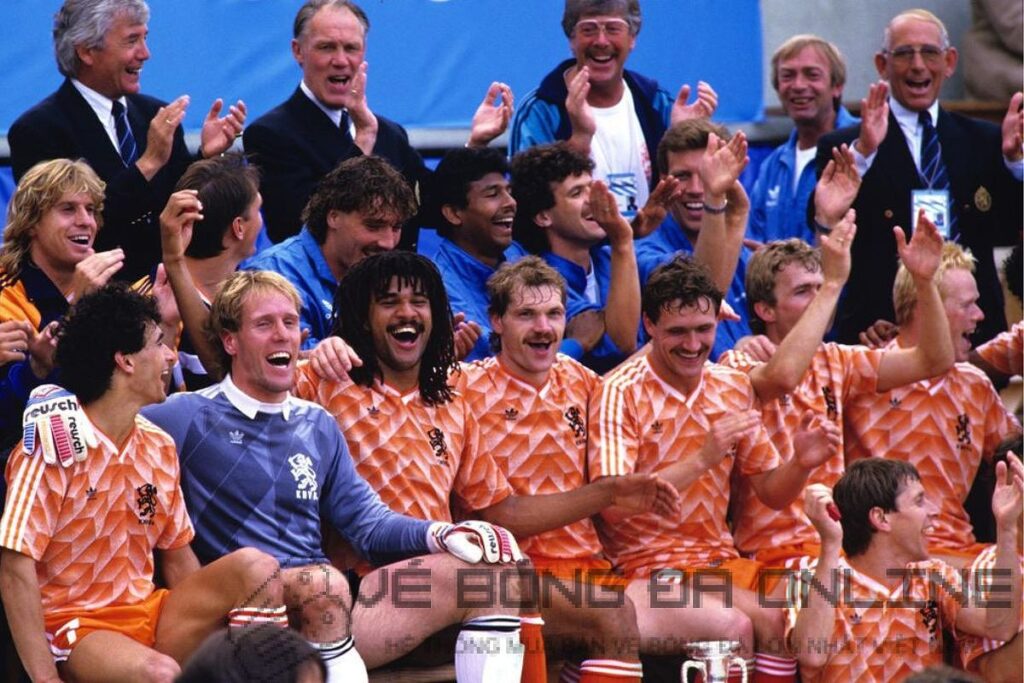Few predicted the Netherlands team would win Euro 1988. Their previous international performances, while impressive, often fell short of expectations. This unexpected triumph showcased the power of a cohesive team and a tactical approach that proved strikingly effective.
The Rise of Dutch Football in the 1980s: A Foundation of Total Football
The Legacy of Total Football
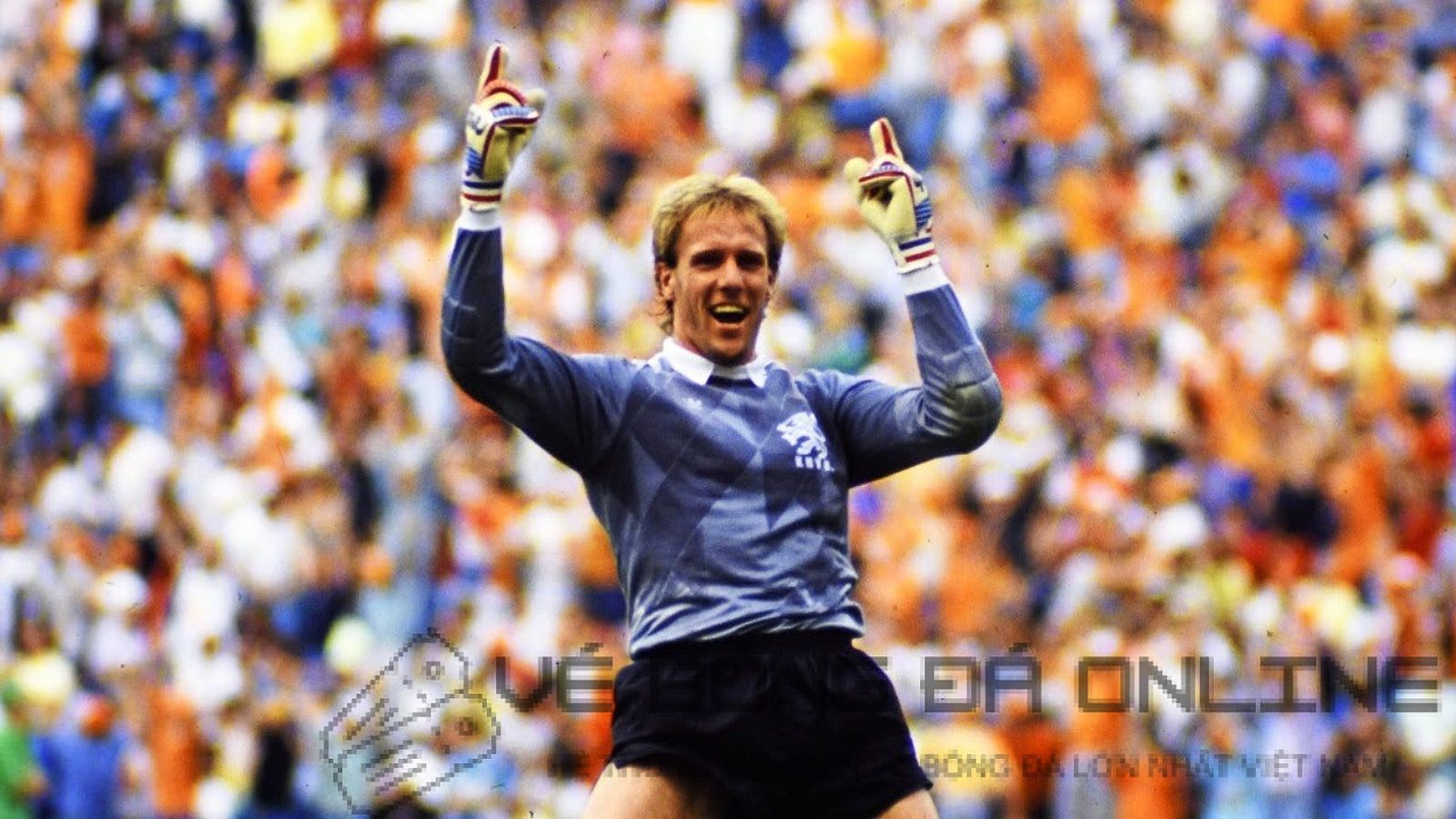
The 1980s were a defining decade for Dutch football, rooted in the revolutionary philosophy of Total Football. Introduced by Rinus Michels and further popularized by Johan Cruyff, this approach emphasized fluid movement, positional interchangeability, and a collective team effort. Total Football became synonymous with the Dutch national identity, shaping the way the game was played both on the domestic and international stages.
Throughout the 1970s, the Dutch national team experienced heartbreak in World Cup finals, igniting an even greater ambition to succeed. The principles of Total Football laid the groundwork for the evolution of Dutch football in the 1980s, as it adapted to new challenges while remaining true to its core values.
As the decade unfolded, Dutch clubs such as Ajax and PSV Eindhoven began to dominate European competitions, winning critical titles and fostering a generation of players steeped in the ideals of Total Football. This era saw the emergence of youth academies that focused on nurturing talent, reinforcing the foundation for future successes at both club and national levels.
The Emergence of New Stars
![]()
The 1980s also heralded the rise of a new generation of footballers who would leave an indelible mark on the sport. Icons like Ruud Gullit, Marco van Basten, and Frank Rijkaard became the face of Dutch football excellence. Gullit’s versatility and physicality complemented Van Basten’s extraordinary finishing skills, while Rijkaard’s defensive stability provided the backbone of the team.
The Squad: A Blend of Talent and Tactical Acumen
Each player’s unique skills created a dynamic playing style that was not only effective but also captivating. Gullit operated as a box-to-box midfielder, seamlessly transitioning between attack and defense, orchestrating play with his vision and strength. Van Basten, as the clinical finisher, was renowned for his ability to convert chances into goals, often from impossible angles. Rijkaard, as the defensive anchor, provided the necessary stability, skillfully breaking up opposition attacks and initiating counterplays. Their chemistry and understanding on the pitch would be pivotal to the Netherlands’ successful campaign at Euro 1988.
Domestic Success and International Aspirations
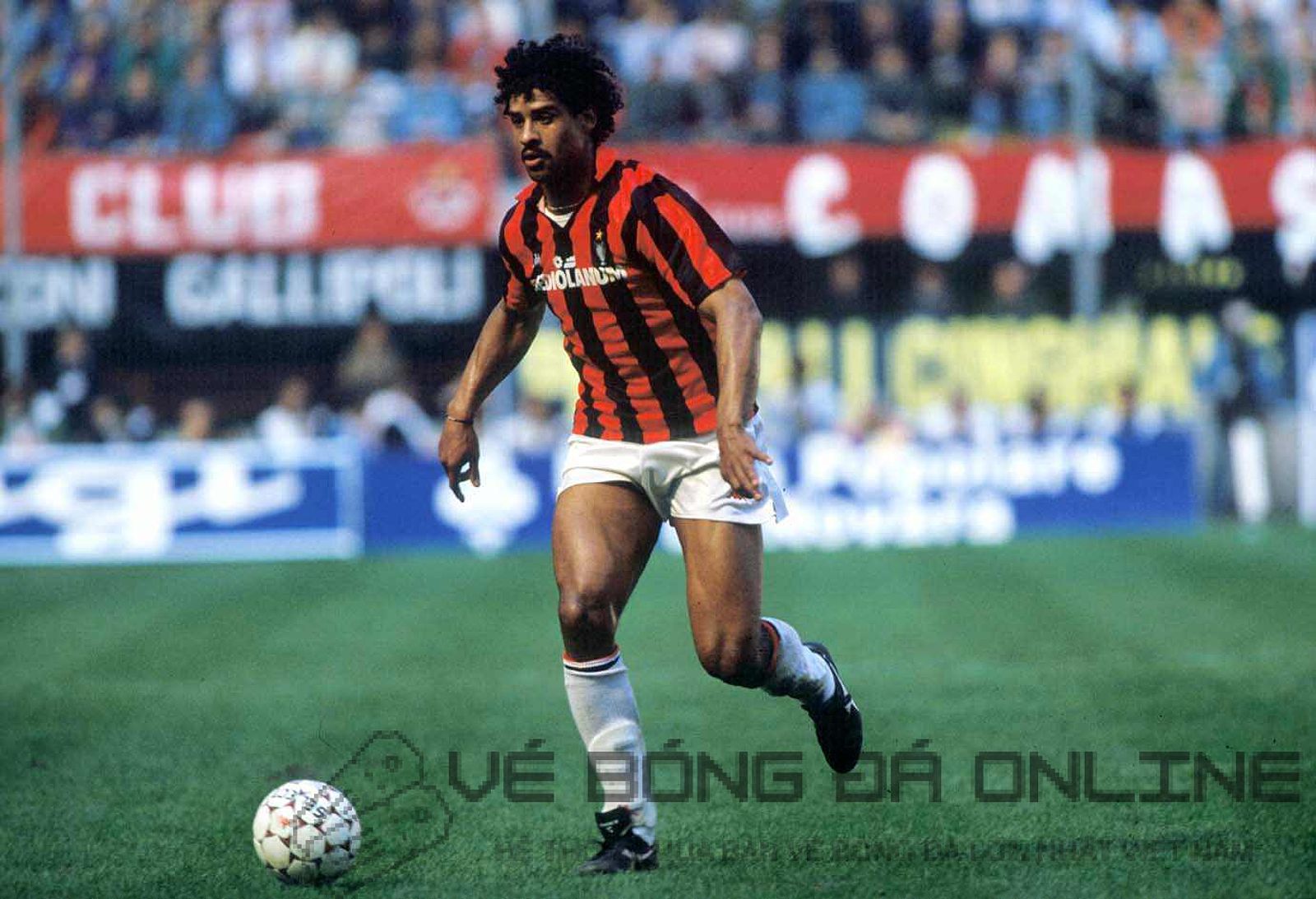
As Dutch clubs experienced success in European competitions, the national team began to gain confidence and recognition. Ajax and PSV Eindhoven’s triumphs provided invaluable experience in high-stakes situations, nurturing a winning mentality that would prove crucial during Euro 1988.
By the time the tournament arrived, the Netherlands was no longer just a team with potential; they were a formidable force in European football, ready to challenge the best.
Euro 1988: A Tournament Defined by Resilience and Brilliance
Tournament Format and Key Teams
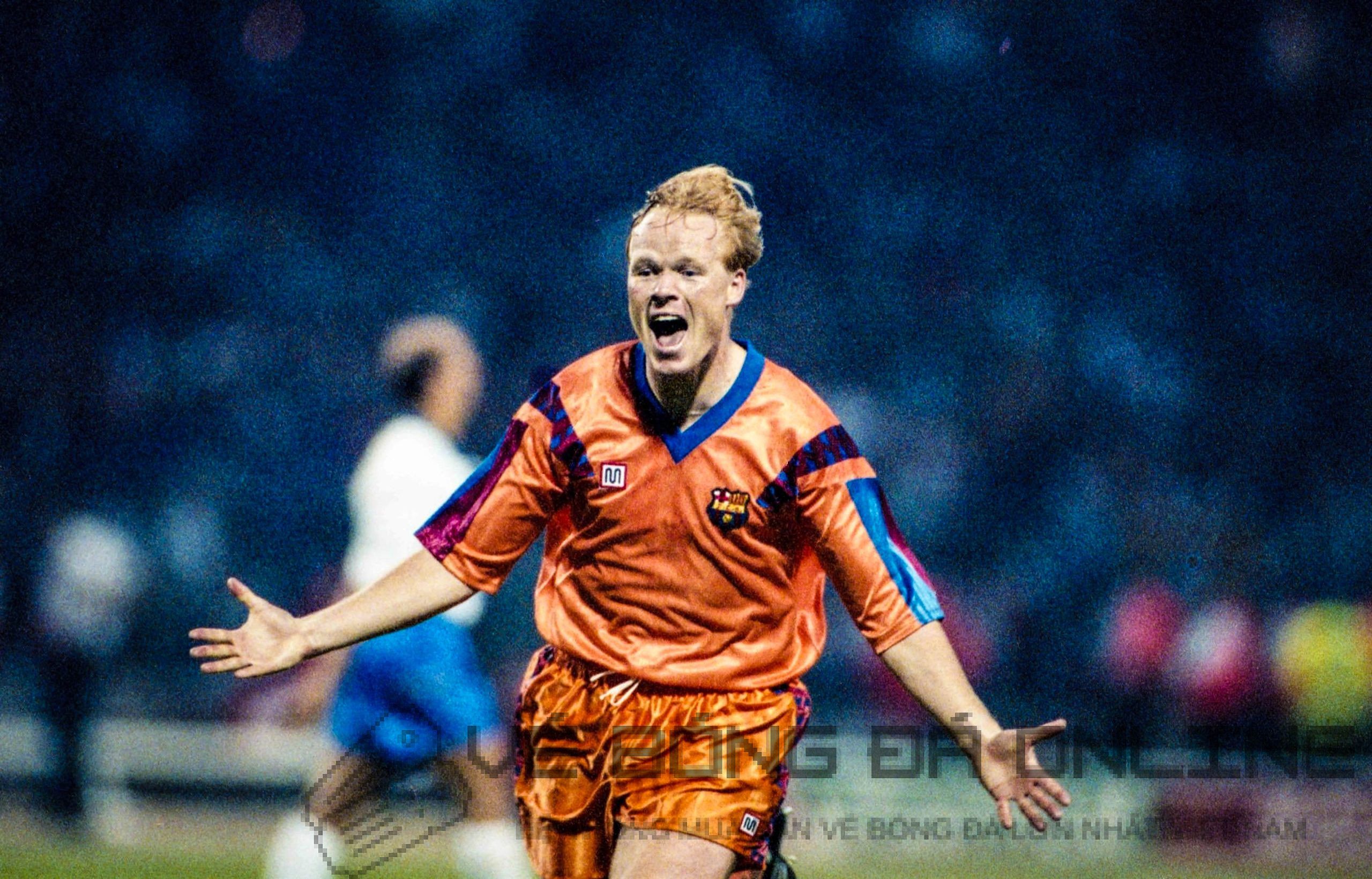
Euro 1988 took place in West Germany, featuring eight teams divided into two groups. The format allowed the top two teams from each group to advance to the knockout stages, culminating in the semi-finals and finals. The Netherlands entered the tournament with high expectations, facing strong competition from teams like West Germany, the Soviet Union, and Italy.
Group Stage Performance
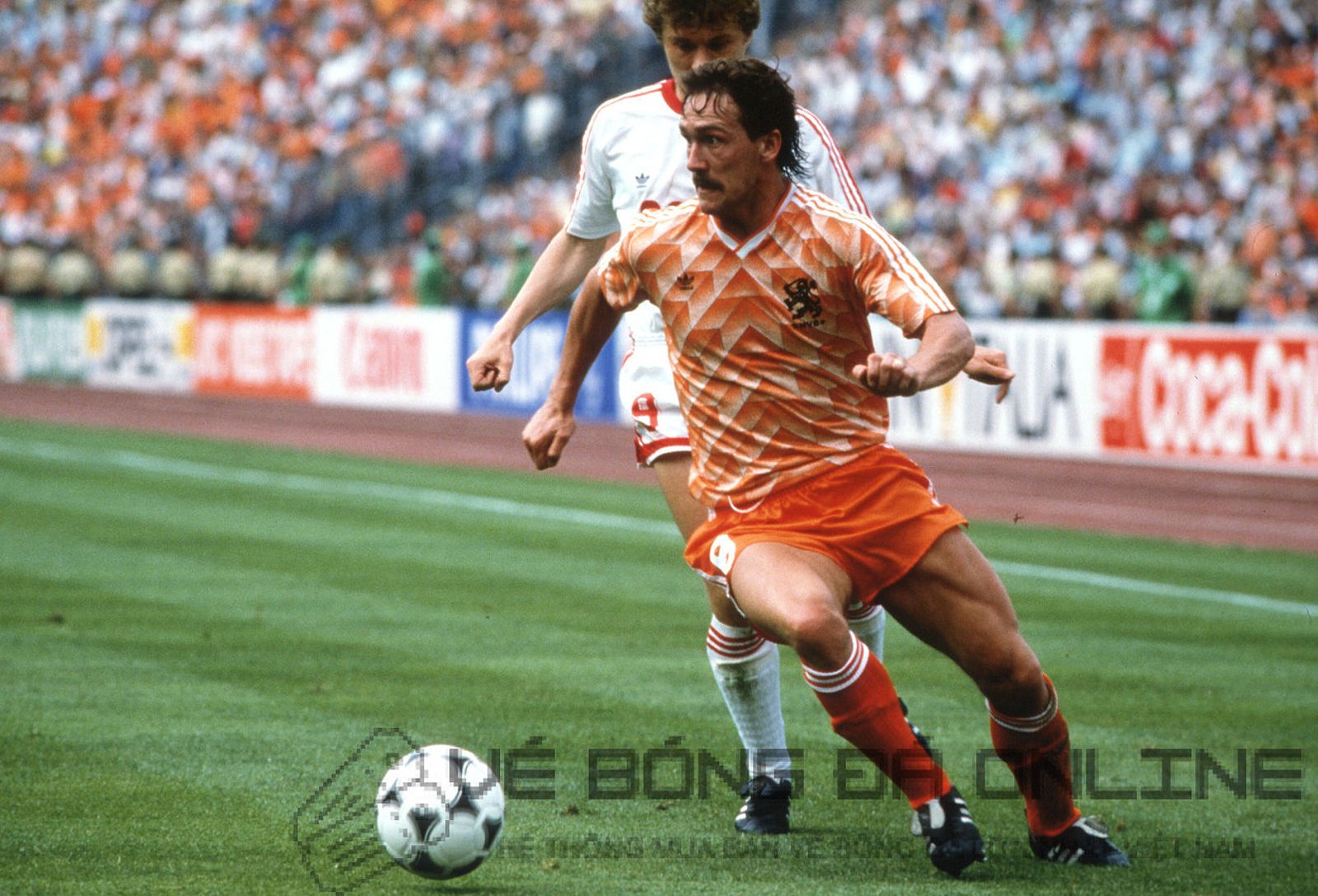
The Netherlands’ journey began on a rocky note, suffering a 1-0 defeat to the Soviet Union in their opening match on June 10, 1988. Despite controlling possession, they struggled to convert their chances into goals. However, the team quickly rebounded, showcasing their resilience and attacking prowess.
In their second match on June 16, they defeated England 3-1, with Van Basten scoring a stunning goal that would set the tone for the remainder of the tournament. The final group stage match against Ireland on June 20 was a nail-biting encounter, with the Dutch needing a win to secure advancement. A last-minute goal from Ronald Koeman sealed a narrow 1-0 victory, propelling the Netherlands into the knockout stages with a record of two wins and one loss.
The Knockout Stages: Semifinal and Final
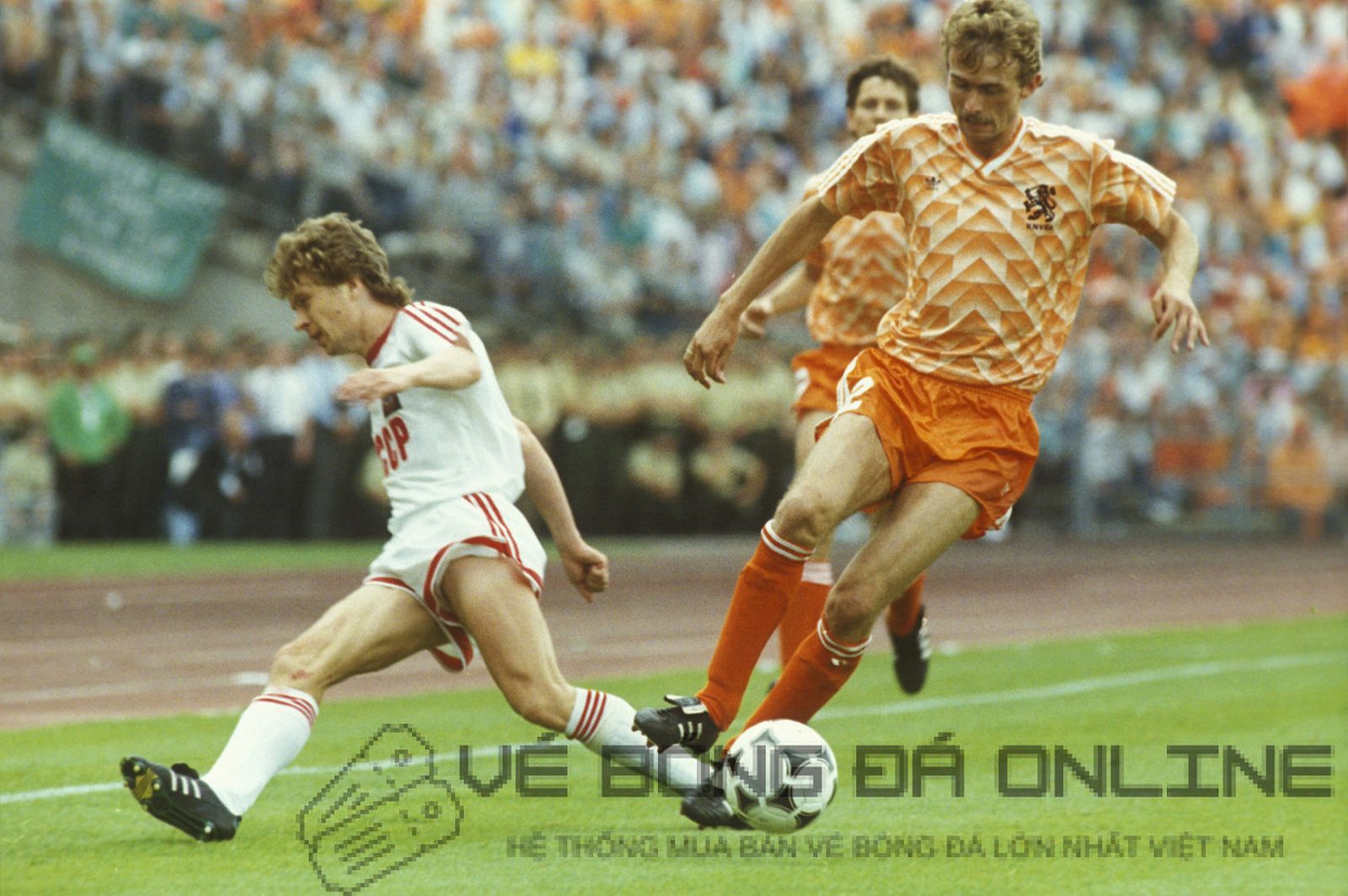
In the semi-finals, the Netherlands faced the hosts, West Germany, in a highly anticipated clash on June 21. The match was underscored by intense rivalry, given their historical encounters, including the infamous 1974 World Cup final.
West Germany took the lead with a penalty from Lothar Matthäus, but the Dutch responded with determination. Koeman equalized from the spot, and Van Basten scored a dramatic late winner, securing a 2-1 victory. This match not only avenged past defeats but also solidified the Netherlands’ status as a formidable team.
The final against the Soviet Union on June 25 was a display of tactical brilliance and individual skill. Gullit opened the scoring with a powerful header, followed by Van Basten’s iconic volley, which remains one of the greatest goals in Euro history. The Netherlands triumphed 2-0, capturing their first major international trophy and etching their names into football lore.
Statistical Overview
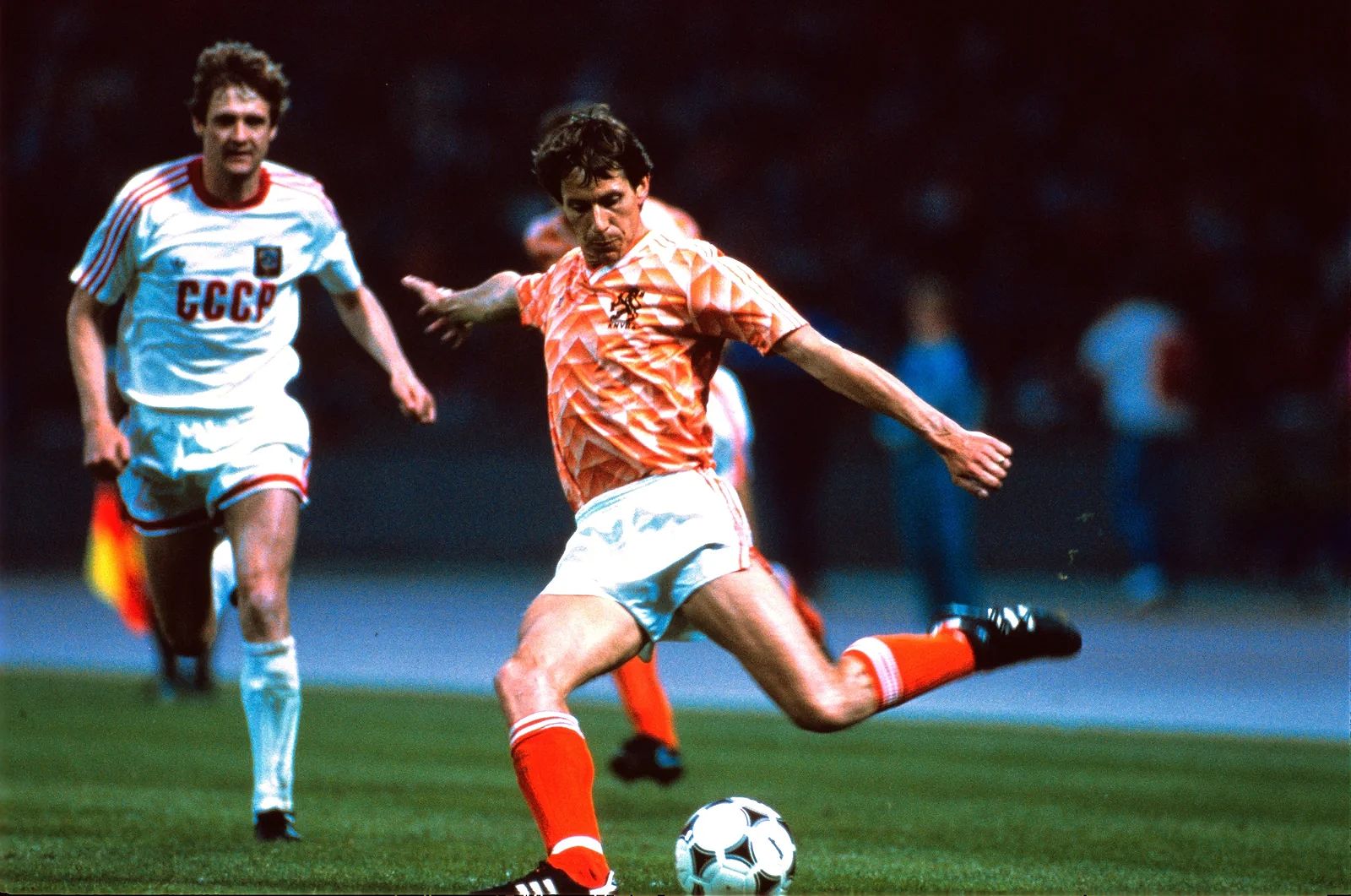
Throughout Euro 1988, the Netherlands demonstrated exceptional statistics, scoring a total of 8 goals while conceding only 2. Van Basten finished as the tournament’s top scorer with five goals, further emphasizing his status as one of football’s greatest forwards. The team’s possession and passing accuracy were also noteworthy, reflecting the principles of Total Football that guided their play.
Tactical Masterclass: The Netherlands’ Approach to Total Football
The tactical approach employed by the Netherlands during Euro 1988 was groundbreaking. Their use of fluid formations and positional interchangeability created a dynamic attacking style that would influence future generations of football.
Fluid Formations and Positional Interchangeability
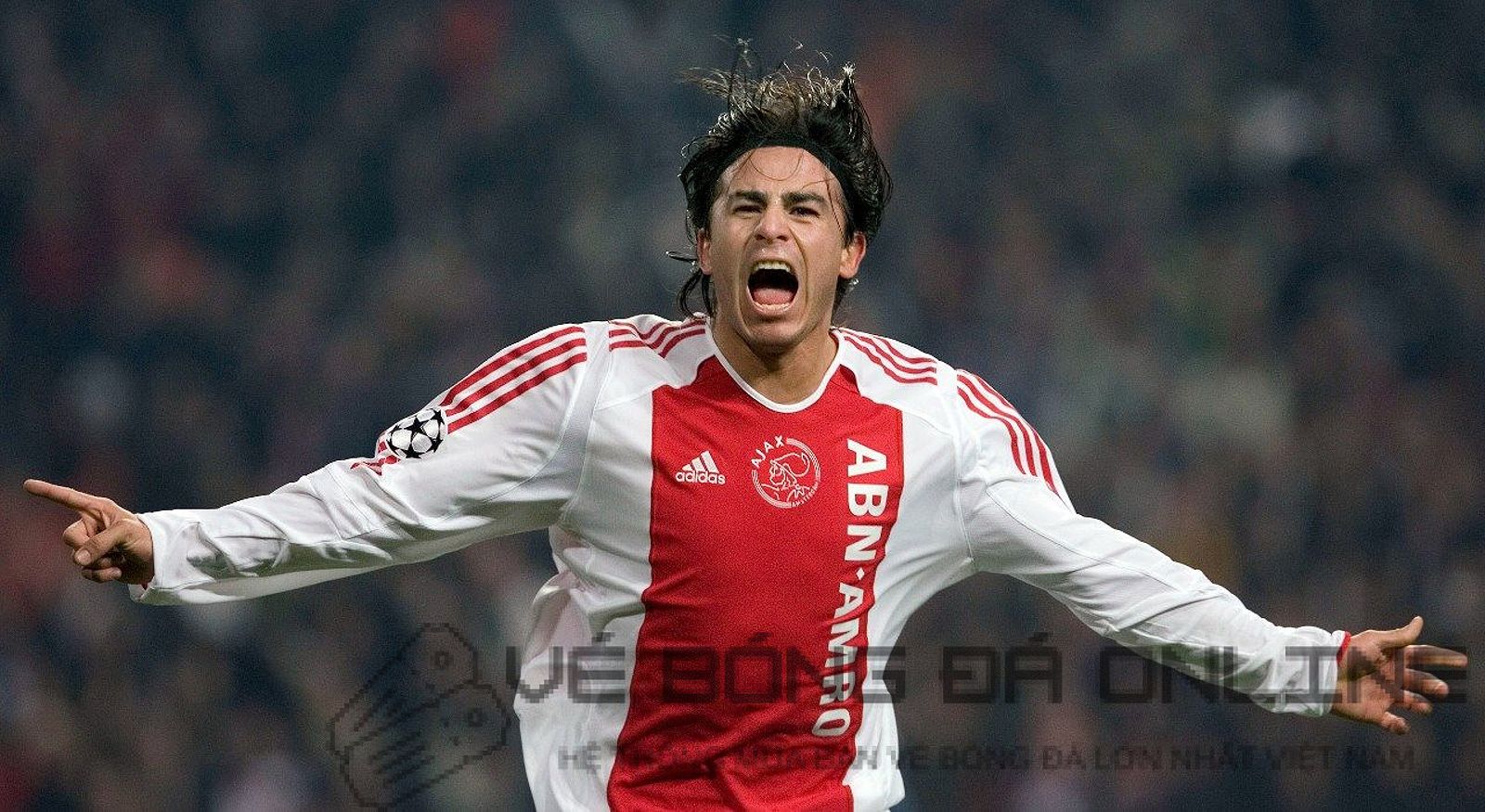
The Netherlands team won Euro 1988 through a tactical masterclass that emphasized fluid formations and positional versatility. Players were encouraged to interchange positions seamlessly, allowing them to exploit gaps in the opposition’s defense while maintaining a solid structure.
This strategy not only confused opponents but also allowed the Dutch to transition quickly between defense and attack. The balance between defensive discipline and attacking flair demonstrated a sophisticated understanding of the game, setting a precedent for teams that followed.
Attacking and Defensive Strategies
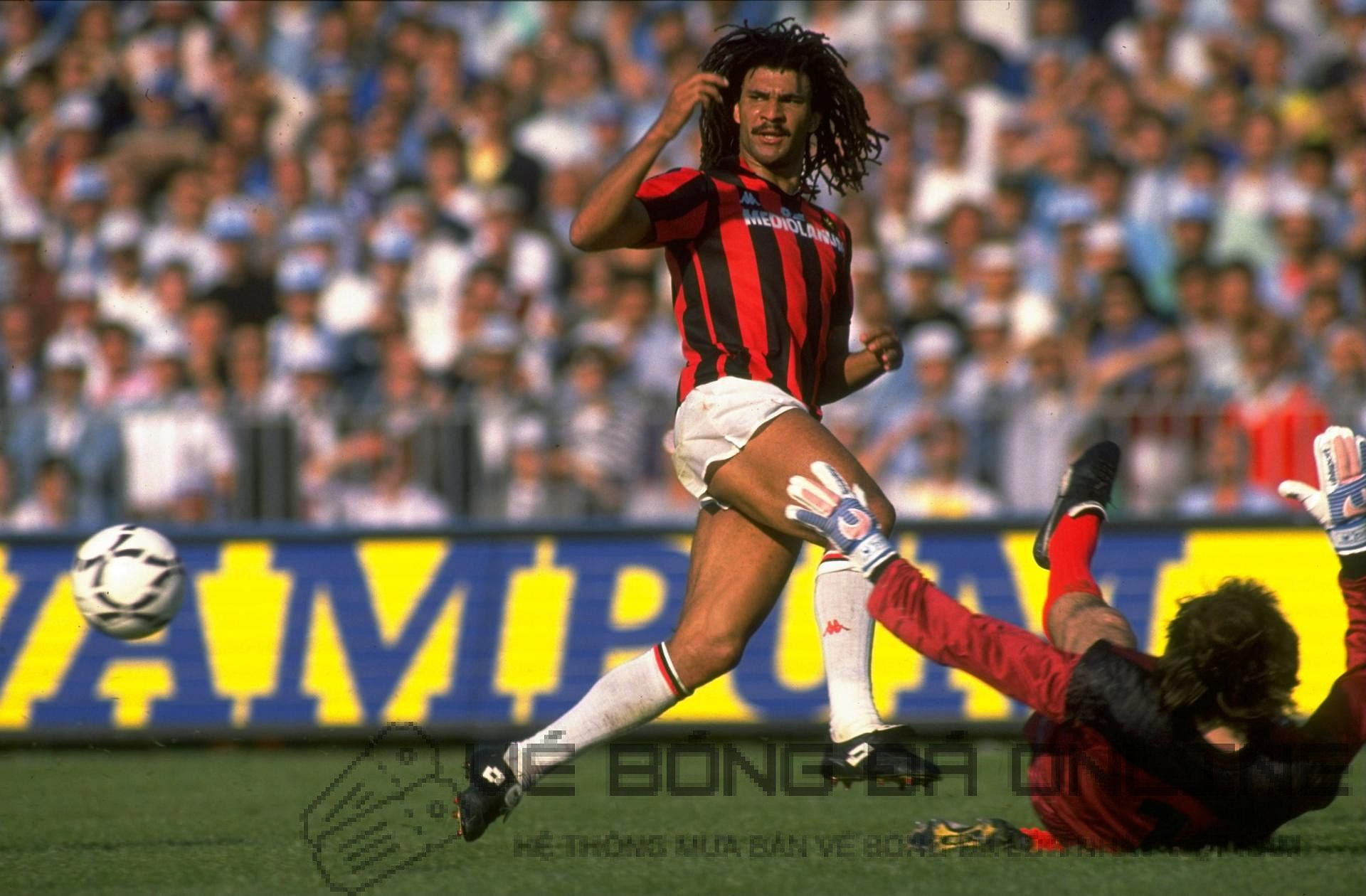
The attacking strategy of the Netherlands was characterized by quick, incisive passing and movement off the ball. This style not only created goal-scoring opportunities but also kept opponents on the back foot. Defensively, the team employed a high pressing game, forcing opponents into mistakes and regaining possession quickly.
When compared to other successful teams of the era, the Netherlands’ tactical approach during Euro 1988 was a blend of creativity and discipline, inspiring clubs and nations alike to adopt similar philosophies.
Tactical Decisions and Adjustments
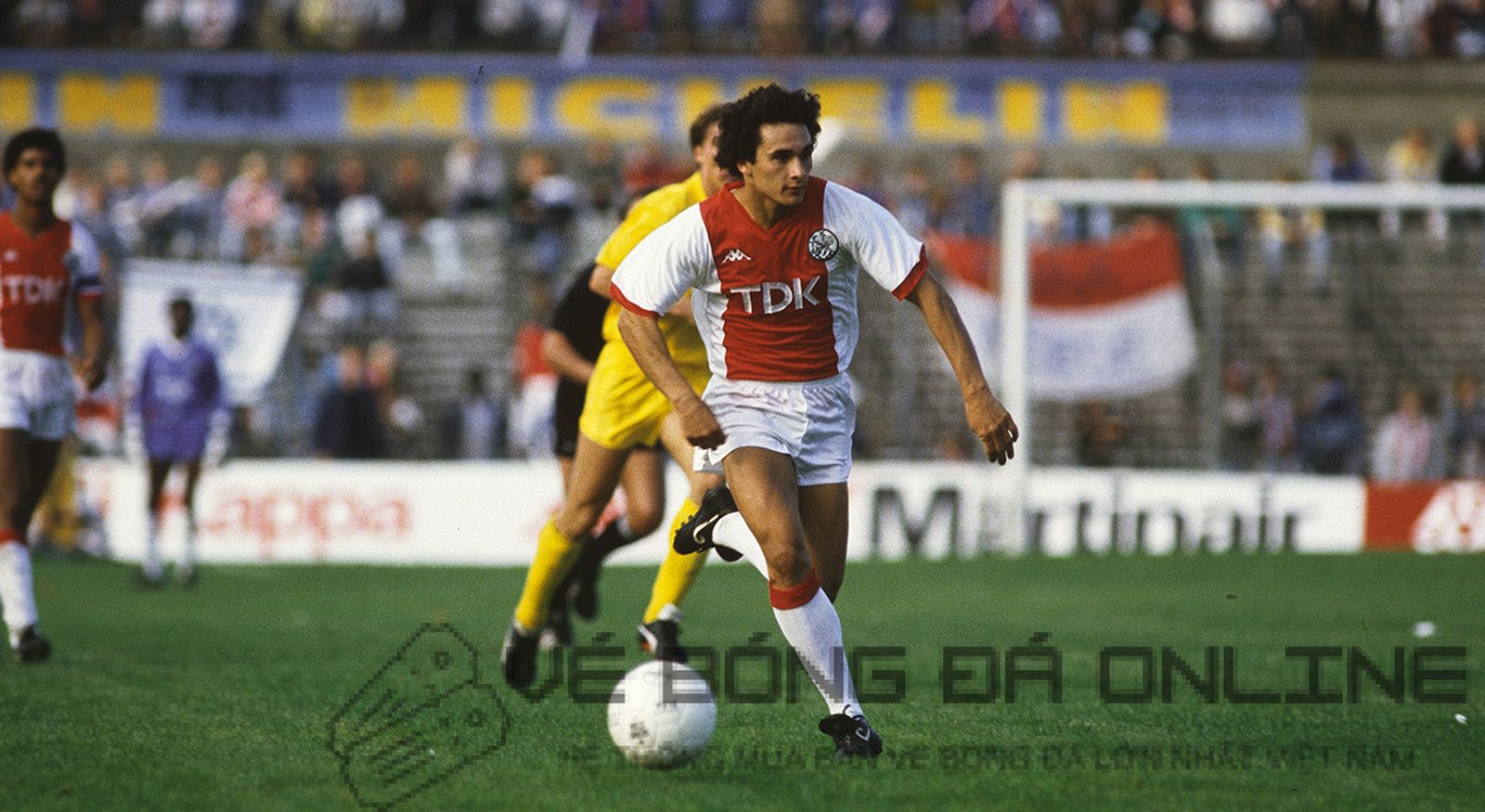
Rinus Michels, the mastermind behind the Netherlands’ success, made crucial tactical decisions throughout the tournament that contributed significantly to their victory. His ability to read the game allowed him to make in-game adjustments, such as shifting formations based on the opposition’s strengths and weaknesses. For instance, in the semi-final against West Germany, Michels opted for a more compact midfield to stifle their attacking threats, allowing the Dutch to regain control and create scoring opportunities. These strategic choices highlighted the adaptability of the Netherlands team, reinforcing their position as pioneers of modern football tactics.
The Enduring Legacy: Impact on Dutch Football and Beyond
Celebrating the Flying Dutchmen
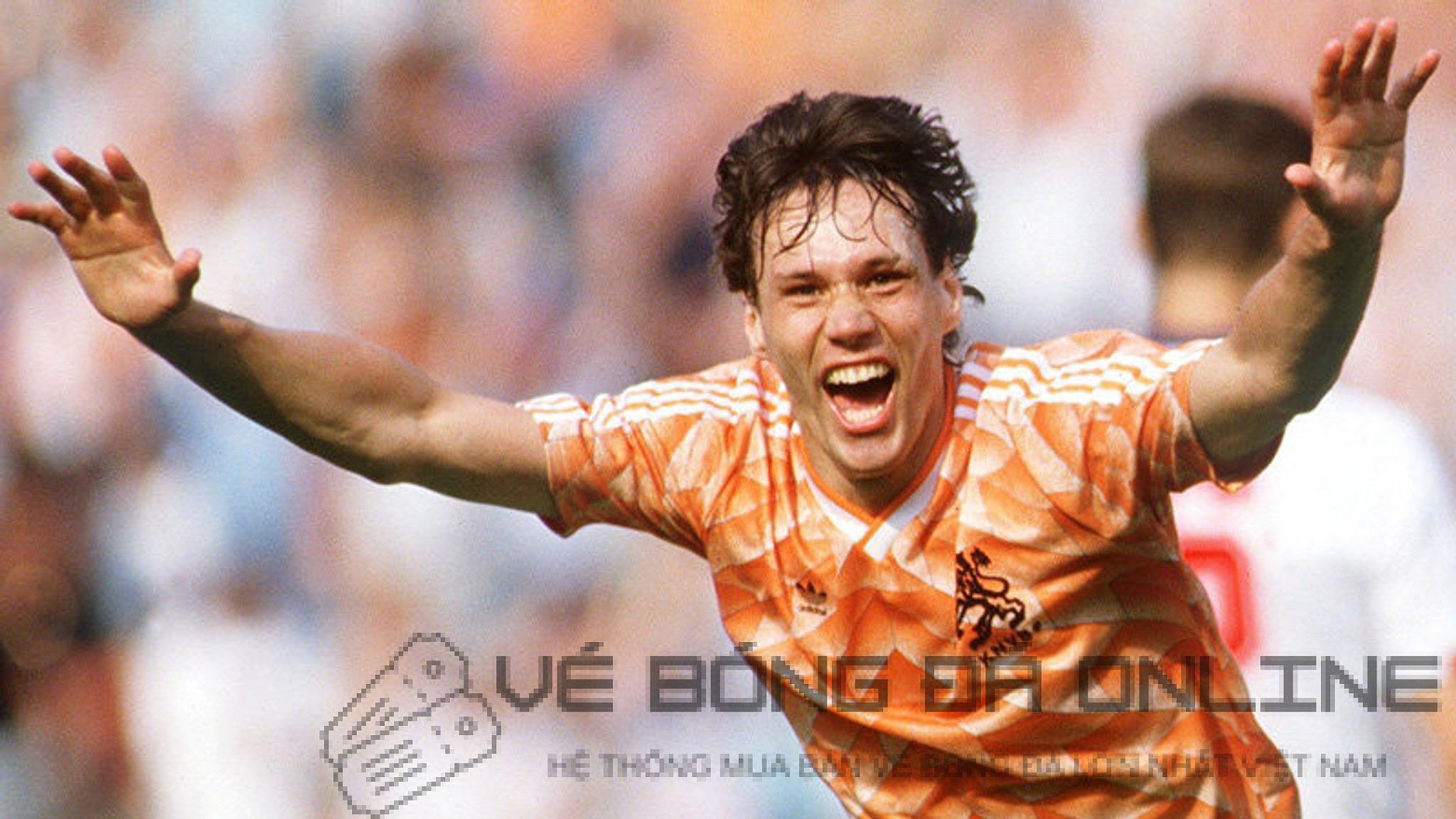
The success of the Netherlands team at Euro 1988 was not just a momentary achievement; it launched the careers of several legendary players. Gullit, Van Basten, and Rijkaard went on to enjoy illustrious club careers, particularly in Italy with AC Milan, where they showcased their exceptional talents. Their contributions to both club and country ensured that the legacy of Euro 1988 would endure for generations.
Tactical Innovations and Their Influence
The tactical innovations employed by the Netherlands during Euro 1988 continue to resonate within modern football. The principles of Total Football remain relevant, influencing coaching philosophies and player development around the world. The success of this tactical approach would inspire other nations and clubs to adopt similar styles, contributing to the evolution of the sport.
Cultural Impact on the Netherlands
The victory at Euro 1988 had a profound cultural impact on the Netherlands. The triumph united the nation, fostering a sense of pride and accomplishment that transcended the sport. Streets filled with jubilant fans celebrating their team’s success illustrated the deep connection between football and national identity. The victory brought joy and a sense of hope, reinforcing the notion that the Netherlands could compete at the highest level.
Long-Term Influence on Dutch Football
The legacy of Euro 1988 continues to influence Dutch football today. The principles of Total Football, combined with the success of the “golden generation,” have shaped the development of future players and teams. Subsequent generations of Dutch footballers have drawn inspiration from this triumph, striving to emulate the success of their predecessors.
Despite fluctuations in performance in major tournaments, the Netherlands has remained a respected name in international football. The impact of Euro 1988 is evident in the continued emphasis on youth development and the nurturing of talent within the Dutch football system.
Comparing Euro 1988 with Other Major Tournaments
World Cup Performances
When comparing the Netherlands’ Euro 1988 victory to their World Cup performances, it is essential to note the contrasting outcomes. The national team reached the World Cup finals in both 1974 and 1978 but fell short of glory on both occasions. These experiences shaped the players’ determination and resilience, ultimately contributing to their success in 1988.
The tactical approach and player composition during Euro 1988 differed significantly from their World Cup campaigns. The emergence of a new generation of players brought fresh energy and perspective, allowing the Netherlands to achieve what had previously eluded them.
Comparison with Other Successful Euro Campaigns
Euro 1988 can be compared to other successful campaigns, such as Spain in 2008 and Italy in 2006. While each tournament had its unique context, the emphasis on teamwork, tactical acumen, and individual brilliance is a common thread. The Netherlands’ playing style in 1988 was characterized by attacking flair, similar to Spain’s possession-based game in 2008.
Ultimately, the triumph of the Netherlands team at Euro 1988 remains a high point in the history of European football, celebrated for its aesthetic beauty and historical significance.
The Enduring Legacy in Modern Football
The principles of Total Football have evolved and found resonance in modern football tactics. Contemporary managers like Pep Guardiola have embraced elements of this philosophy, emphasizing possession-based football and fluid positional play. Guardiola’s approach with teams like FC Barcelona and Manchester City reflects the core tenets of Total Football, showcasing how the ideas first popularized by the Dutch continue to shape the game today.
Moreover, youth academies around the world are increasingly adopting the Total Football philosophy in their training methodologies. This focus on versatility and tactical understanding nurtures players capable of adapting to various roles on the pitch, ensuring the legacy of Euro 1988 lives on through future generations.
Conclusion
The Netherlands team won the Euro 1988, a victory that stands as a testament to their exceptional talent and tactical innovation. This triumph not only secured a major title for the national team but also left a lasting impact on the world of football. The legacy of the “golden generation” continues to inspire future players and coaches, ensuring that the spirit of Euro 1988 endures in the annals of football history. By understanding and embracing the principles of Total Football, both past and present, the Netherlands has cemented its place as a cornerstone of international football, reminding us that teamwork, creativity, and tactical awareness remain the keys to success on the global stage.

